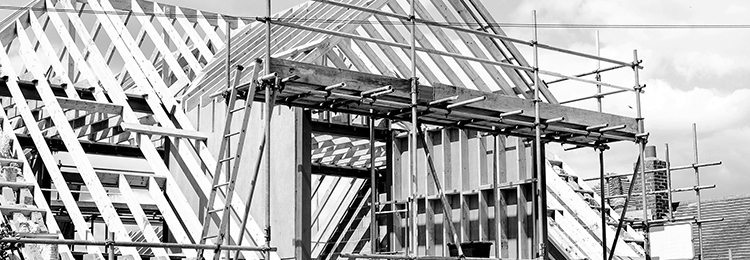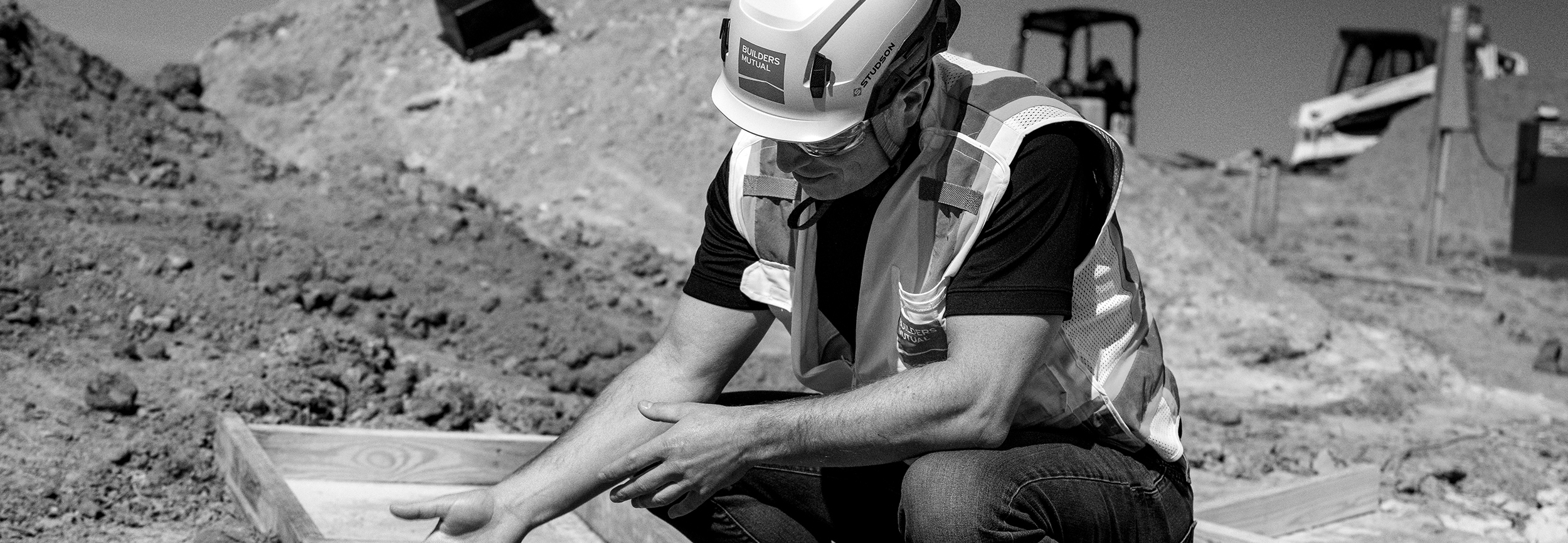Hurricane season is here, and it is important to protect yourself and your business before a storm hits. High winds and flooding can arrive quickly and leave little time to prepare if you haven’t planned ahead. You can get started with a plan by learning about hurricane preparation in this article.
After a storm, you’ll also need a plan to assess and resolve any property damage. Jeff Lenhart, claims litigation specialist at Builders Mutual, joins us to share his recommendations for storm recovery and the best ways to get your business back on its feet as quickly as possible.
Here are a few important steps you can take following a hurricane:
First things first: take care of yourself
Personal safety should be your first priority during and after a storm. Be sure you and your home are secure before focusing on business matters.
After you ensure your personal safety, you should take caution when entering a job-site. Many hazards remain after a hurricane, including flood water, heavy objects made unstable by wind damage and, sometimes, unwelcome animals seeking shelter. Be sure to wear the proper personal protective equipment (PPE) when assessing job-sites; your safety always comes first.
Document, document, document
Throughout the hurricane recovery process, you should constantly document any and all damage. When you file your insurance claim, you will be asked to identify damaged, lost, or stolen property so it may be replaced. The best practice for documentation is to take photos of the job-site prior to a storm and keep inventory and equipment lists. The more you document ahead of time, the faster and easier it will be to assess damage later by using your inventory lists.
Continue to take photos after the storm to show the damage and differences. It is OK to begin to preserve and remove items, as long as you take photos of their state before cleaning up. This includes property and debris such as trees, shrubbery, or trash brought in by the wind.
If you make transactions as part of storm recovery, it is important to save all of your receipts and document the purpose of the purchase. This can help with your insurance reimbursement later on. The more information you provide, the more likely you are to be reimbursed.
Here’s a good general rule: Inventory all assets and take before AND after photos.
Preserve and protect property
After a storm, your site may still be at risk of falling tree branches and damage from standing water.
First, safely dispose of items like fallen branches that limit access to the job-site. You should clear a path so you and your crew can enter and exit easily. When you are disposing of any debris or unsalvageable items, be sure to assess potential hazards.
Next, you can begin preserving your property. If there is any undamaged or salvageable property, you can move it to a safe storage space so it does not sustain further damage. Take notes to document damage information so you can receive the best reimbursement.
Protecting your job-site is also important. Storm damage leaves job-sites exposed to theft and further damage from looters. You may need to erect a fence or hire security to patrol your site. Reasonable expenses for a temporary fence or security detail will sometimes be covered by insurance.
National companies typically come into cities after storms to respond to increased demand for recovery assistance. When hiring external help to move, protect, or store your property, we recommend using local or trusted connections. Prices for these services often rise due to the increased demand following a storm; however, the more reasonably priced the services you obtain are, the more likely you are to be covered.
Use your agent as a resource
After a storm, you should begin to file claims as soon as possible. The longer you wait, the more difficult. It will be to ensure coverage. Some who have suffered hurricane damage will wait to file because they think others have worse damage. Do not wait to submit your claim. Insurance companies bring in extra staff to handle all claims after a damaging storm. Your agent will handle and help prioritize your case.
Your claims agent can be a valuable resource during the recovery process. Be clear and prompt with your agent. You may be covered under several policies, and the agent can ensure you are getting the appropriate benefits of coverage, and put everyone on notice.
Following these practices can make the stressful process of hurricane recovery move more smoothly. Fortunately, many types of damage from a hurricane will be covered under your policy and taking the proper pre- and post-hurricane steps will aid in reducing your businesses down time.
Content reviewed 3-2021.




 Find an
Find an